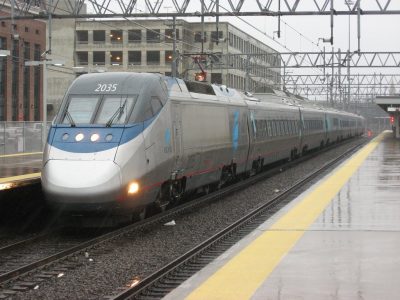Amtrak has started replacing its older Acela trains with new trains on the Northeast Corridor.

Twenty-eight new trains are expected to arrive by the end of next year.
The Corridor offers stops from Boston to Washington D.C. and sees more than 260 million trips per year for passengers, according to Amtrak.
Introduced into service in 2000, the current trains are still secure, dependable transportation methods, Amtrak Public Relations Manager Jason Abrams said.
“At this point, they’re 20 years old,” Abrams said. “We want to make the Acela experience more modern and more in line with today’s times.”
Abrams said the replacement trains will travel at 160 mph, 10 mph faster than the current models. They will also have accessibility features allowing passengers with disabilities to move more easily, as well as built-in technology to inform travelers of their location, travel speed and any announcements from the conductor.
The trains will also use 40 percent less energy per passenger and have a recycling program on board, Abrams said. Seats are also made out of recycled leather.
The new trains were paid for in part by loans from the federal Railroad Rehabilitation and Improvement Financing Program, according to an Amtrak fact sheet.
Safety features on the trains will include seatback handles for riders to hold on to while walking through the train and gap fillers in between the train and platform, according to the fact sheet.
Carlton Ho, an professor of engineering at the University of Massachusetts Amherst, said replacing old trains with new versions is a natural process, much like replacing one’s own vehicle.
“Amtrak is replacing their older trains with ones that are much better,” Ho said. “The company that’s manufacturing them has a long history of producing excellent trains at all different levels, everything from metro’s light rail up to high-speed passenger rail.”
Ho said once the current trains retire from the Northeast Corridor, their usable parts are typically recycled for other purposes so as to not produce more waste.
Passengers should expect the current train schedule to remain unchanged unless the new trains run faster than the old models, Ho said, in which case increased efficiency would allow for schedule improvements.
Ho said the new trains could change how people choose to travel.
“We know the traffic is horrible getting around Boston during certain times of the day,” Ho said. “If you could simply take the train instead of having to drive in on I-95, that would be a great improvement.”




